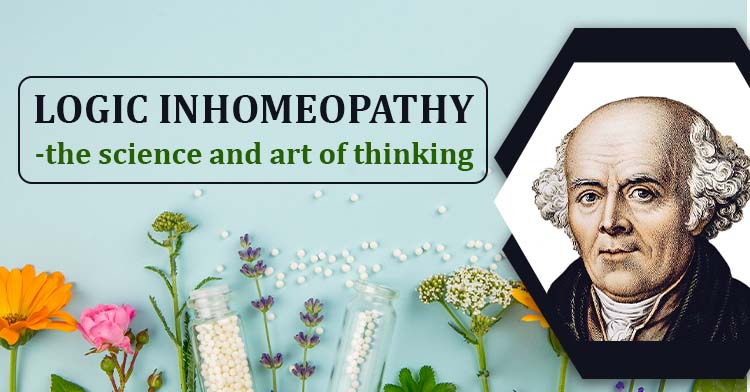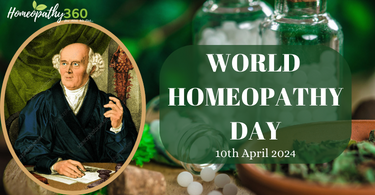
Logic
A successful homoeopath logically connects his understanding of the materia medica, Organon, and repertory to the patient’s sufferings. The only thing that separates a good prescription from a good diagnosis from a good examination is how well the logic’s rules are applied. The foundation of all modern science is “inductive logic.” Even homoeopathy is developed and founded on inductive reasoning.
Logic is defined as “the science and art of thinking”.
Logic the study of principles of correct thinking. It is the study of principles and methods of thought, or arguments and conclusions. Conclusions are drawn from these discussions.
The term “logic” as a topic of reasoning was first used by Aristotle. The classic compilation of Aristotle’s six books on logic is called The Organon. Francis Bacon wrote a philosophical book titled The Novum Organum. He discussed several sorts of logic in this.
Important properties the logical systems
Consistency:This means that the system’s theorems are consistent with other theorems. not subject to any changes
Validity:Logic must be valid and true so that the conclusion reached after applying this logic is never wrong.
Completeness:Your logic should be complete in all respects, nothing extra.
Soundness :It has the property of preserving truth. It also discusses statement completeness and validity.
Logic is often divided into three parts, inductive logic and deductive logic
Deductive
logic
Also known as “top-down” logic. In this particular case, conclusions are drawn from universal general statements. The final conclusion is always true.
EX : All oranges are
fruits
All fruits grow on trees
Therefore, all oranges grow on trees
Ex: A general premise – All medical students are intelligent. 2. Rama is a medical student. Here the particular conclusion of deductive logic says that Rama is intelligent, because he is a medical student. As the general premise says all the medical students are intelligent.
Inductive logic
It is also called”bottom-up” logic. It derives a general
conclusion from a particular examples. inductive reasoning allows the
possibility that the conclusion is false, even if all of the premises are true particular
premises to generalized.
EX : All of the swans we have seen are white.Therefore, all swans are white.
Ex: 1. Particular facts: i. Rama is intelligent; he is a medical student. ii. Sita is intelligent; she is a medical student. iii. Somu is intelligent; he is a medical student. Ex: 2. General conclusion: All the medical students must be intelligent.
Homoeopathy is based on inductive method of reasoning. This inductive logic requires
- Exact observation : Hahnemann’s honest disappointment with practice of medicine made him to quit practice and he turned to translations. He was able to comprehend how cinchona bark may generate symptoms on the one hand and the symptoms of the patient on the other thanks to his observations of its effects and his experiments with medical ingredients.
- Correct interpretation : Thorough study of the phenomenon produced by the experiments or provings on different groups,age,sex reduced the probability of error in observation.
Hahnemann experienced the effect of kina on his body. He was convinced that cinchona bark could cause malaria-like symptoms in healthy humans.Hahnemann took his own experience as a special premise and wanted to test the same in the presence of other companions.As he expected, all were struck with malaria-like symptoms. Considering each Using one person’s experience as a special premise, Hahnemann came to the general conclusion that cinchona cures malaria not because of its bitter taste, but because it can cause malaria in healthy people.
- Rational explanation : Explaining the observed facts by referring them with known natural laws.
- Scientific construction : When the facts are arranged in this way, the system achieved must fit reality. He applied principles developed from inductive reasoning and related them to the experiments he was conducting.
Hahnemann confidently asserted that drugs treat ailments since they can induce identical illnesses in healthy people based on his tests and literature studies. Hahnemann completed his tests in 1796 after six years.
We can categorically assert that homoeopathy is founded on the inductive way of logic if we take Hahnemann’s trials on various people as the particular premises and the formulation of the law “similia similibus curentur” as the general conclusion.
homeopaths apply logic in various fields of medical practice.
- Characteristic symptoms
- Pathological unity of symptoms Disease
- Totality of symptoms
- Individualization
- The art of generalization
- Generalizing the mental state of a patient
- Law of causation
References
1. Das, Asok Kumar. (2002). Treatise on Organon of Medicine (5th Edition). Souvik Homoeo Publications, Kolkata.
2. Hahnemann, Samuel (2003). Organon of Medicine (6th Edition). B. Jain Publishers (Pvt) Ltd, New Delhi.
3.Sarkar, B.K. Organon of medicine. (14 Ed.). Delhi: Birla publications; 2013-2014.
4.Nagendra babu, G. Comprehensive study of organon. (1 Ed.). Noida,up : Bjain publishers; 2009
5.Dawdle, M.L. Principles and practice of homoeopathy. New Delhi: Bjain publishers;
About Author:
Dr.Anjana kumara
BHMS,MD(organon of medicine)
Assistant professor Organon of Medicine Nootan homeopathic Medical college (under Sankalchand Patel University) visnager,Gujarat, India.





